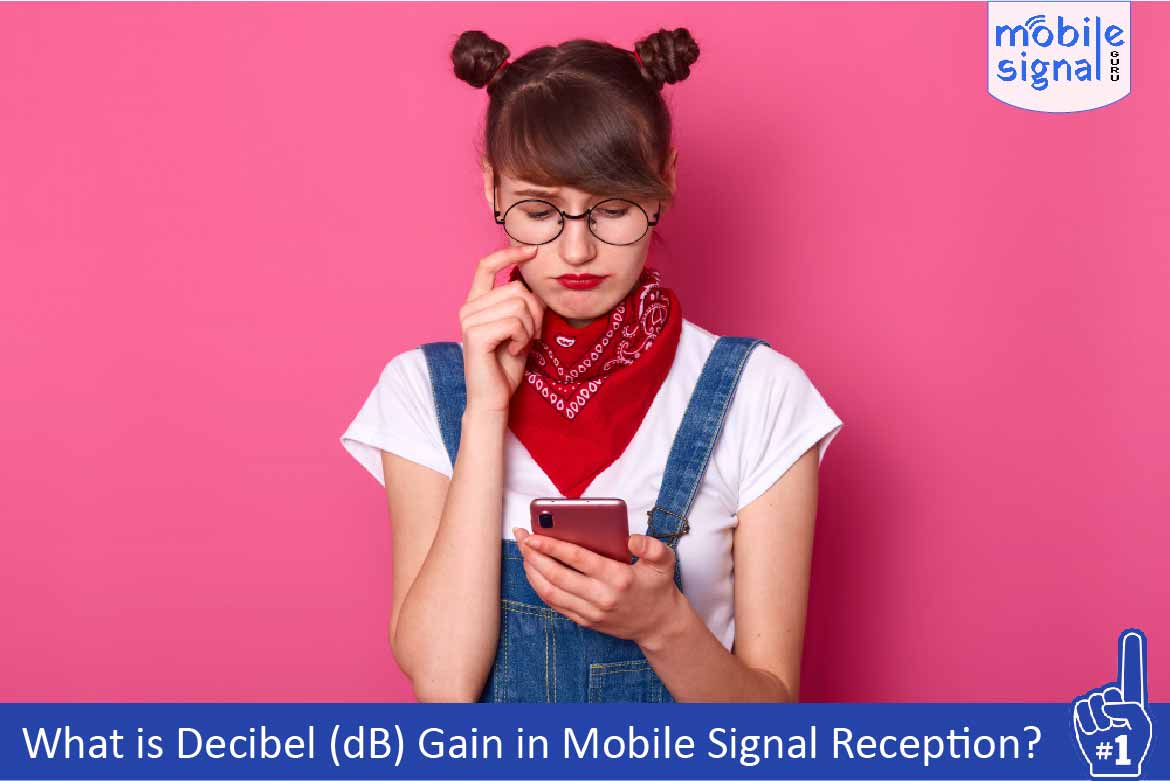In today’s world, staying connected through mobile devices is essential. Whether you’re making calls, sending texts, or browsing online, a strong signal matters. But sometimes, signal strength can weaken, especially in areas with poor reception. This is where understanding decibel (dB) gain in mobile signal reception comes in.
In this article, we’ll explore what decibel gain means, why it’s important for mobile signal reception, and how it can help improve your mobile connectivity. We’ll break down complex terms and use easy-to-understand language. Let’s get started.
What is a Decibel (dB)?
The term “decibel” or dB is a unit of measurement used to express the intensity of a sound or the strength of a signal. It is a ratio, not an absolute value. Decibels measure the gain or loss in signal strength, and it’s common in fields like electronics, sound, and telecommunications.
In mobile signal reception, decibels help measure how much a signal is strengthened (gained) or weakened (lost). Decibels are based on a logarithmic scale, meaning each change represents a large jump. For example, a difference of 10 dB can mean a signal is ten times stronger or weaker.
What is dB Gain?
dB gain, or decibel gain, is the amount by which a signal’s strength increases. When we talk about “gain” in mobile signals, we’re usually referring to amplifiers or antennas that boost signal strength. For example, you may use a mobile signal booster to improve mobile reception in weak-signal areas, like basements or rural locations.
dB gain can make a big difference in mobile reception. The higher the dB gain, the stronger the signal boost. However, there’s a limit to how much gain you need. Too much dB gain can create interference or degrade call quality.
How dB Gain Works in Mobile Signal Reception
Mobile signal reception depends on the strength of the signal reaching your device. This strength can be affected by several factors, including distance from the cell tower, building materials, and obstacles like trees or hills.
When you add a signal booster with dB gain, it amplifies weak signals. Here’s how it works:
- Reception: The external antenna receives the weak signal from a nearby cell tower.
- Amplification: The signal amplifier boosts this weak signal by a certain dB gain.
- Broadcasting: The internal antenna then broadcasts this stronger signal within your home or office.
The amplified signal allows your mobile phone to connect with better reception, leading to clearer calls, faster data speeds, and fewer dropped connections.
How is dB Gain Measured?
dB gain in mobile signal reception is typically measured using negative values, like -50 dB or -110 dB. These numbers represent the signal’s strength in decibels relative to 0 dB. In mobile signal terms:
- -50 dB is a strong signal.
- -110 dB is a weak signal.
The closer the dB number is to zero, the stronger the signal. A change of just a few decibels can have a big impact on reception quality. For instance:
- Going from -100 dB to -90 dB means a 10 dB gain, resulting in better signal strength.
- Similarly, dropping from -60 dB to -70 dB means a weaker signal.
Why is dB Gain Important for Mobile Signals?
dB gain is essential in areas where signals are weak. If you’re far from a cell tower or inside a large building, dB gain from a mobile signal booster can greatly improve your mobile experience. Here are some ways dB gain helps:
- Improved Call Quality: With higher dB gain, you experience clearer calls with less static.
- Faster Data Speeds: Data transfer speeds increase with a stronger signal, making it easier to browse, stream, and download.
- Extended Battery Life: Your phone uses more power searching for a weak signal. With better dB gain, your phone connects easily, conserving battery life.
- Fewer Dropped Calls: A stronger, boosted signal means fewer interruptions and disconnections.
Types of Signal Boosters Based on dB Gain
Not all signal boosters are the same. They come in different strengths, providing different levels of dB gain. Here’s a look at common types:
- Low-Gain Boosters (5-10 dB):
- These are typically for small spaces, like a car or a single room.
- They provide a modest boost, helping in mildly weak areas.
- Medium-Gain Boosters (10-30 dB):
- Ideal for small homes or apartments with low to medium signal problems.
- These boosters cover a larger area but still handle moderate signal issues.
-
High-Gain Boosters (50+ dB):
- These are for large buildings or areas with very poor reception.
- High-gain boosters can amplify signals across large homes or offices.
When choosing a mobile signal booster, consider your specific needs and the area you need to cover.
Choosing the Right dB Gain Level
To choose the right dB gain level, start by measuring your current signal strength. Many smartphones have built-in options to check signal strength in dB. Here’s how:
- On most Android devices, go to Settings > About Phone > Status or Network.
- On iPhones, dial 3001#12345# and press Call to enter Field Test Mode.
Look at the dB reading. If it’s lower than -80 dB, a signal booster with moderate to high dB gain could help.
Tips for Maximizing dB Gain and Signal Reception
Here are a few tips to help maximize signal strength:
- Place the Antenna High Up: Antennas installed on rooftops or high locations get better reception.
- Use Quality Cables: Good cables reduce signal loss between antennas and the amplifier.
- Avoid Interference: Metal objects, concrete walls, and other electronics can weaken signals. Place your booster in an open area.
- Monitor and Adjust: Some boosters have adjustable gain controls, allowing you to fine-tune the gain.
Conclusion
Understanding decibel (dB) gain is key to improving mobile signal reception. Whether you’re in a rural area or an urban building with thick walls, dB gain from a signal booster can enhance your connection. By selecting the right booster and following best practices, you can enjoy better call quality, faster data, and improved overall connectivity.
If you’re experiencing signal issues, dB gain might be your answer to stronger, more reliable mobile connections.
 Australia (AUD)
Australia (AUD) Denmark (DKK)
Denmark (DKK) France (EUR)
France (EUR) Germany (EUR)
Germany (EUR) Ireland (EUR)
Ireland (EUR) Malta (EUR)
Malta (EUR) Netherlands (EUR)
Netherlands (EUR) New Zealand (NZD)
New Zealand (NZD) Norway (NOK)
Norway (NOK) Spain (EUR)
Spain (EUR) Sweden (SEK)
Sweden (SEK) UAE (AED)
UAE (AED) United Kingdom (GBP)
United Kingdom (GBP)
